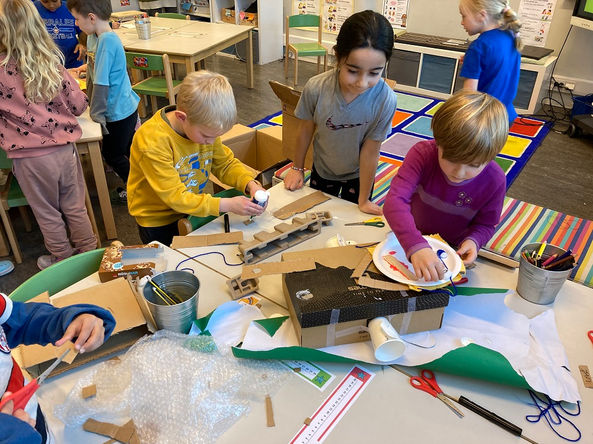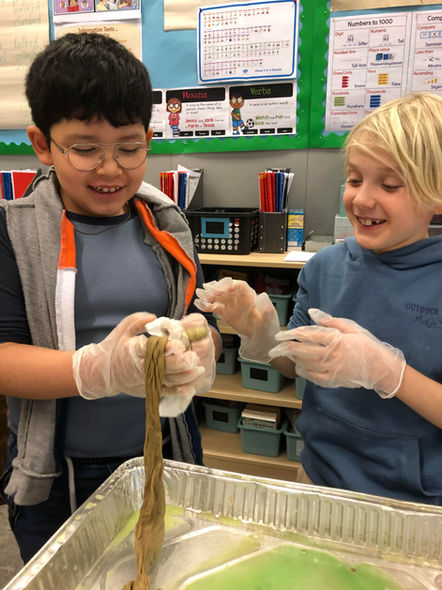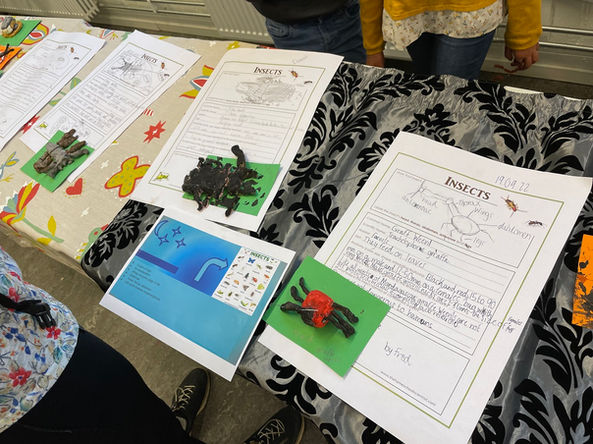Year 1 - Year 5
We offer a fully international curriculum which meets global standards and prepares students for 21st century challenges and opportunities.
The IPC is our International Primary Curriculum for children aged 6 - 11 years old. It is used by over 1000 schools in over 90 countries worldwide.
It is a comprehensive, thematic, creative curriculum, with a clear process of learning and specific learning goals for every subject. It also develops international mindedness and encourages personal learning.
Our curriculum was approved by the Norwegian Directorate for Education and Training, the executive agency for the Ministry of Education and Research, in 2018 and 2020.


Example Unit:
The Magic Toymaker
(Year 1)
The children in Year 1 found some wrapped presents in their classroom when they came back from lunch one day. The presents had a note attached to them:
What’s inside the box, you ask
Why, this is your special task!
A toy, a toy for you to find
But remember, you’ll have to use your mind!
Example Unit:
Chocolate (Year 2)
Wouldn’t it be amazing if chocolate grew on trees? Well, it does! Wouldn’t it be amazing if I said we were going to make some chocolate? Well, we are! And we’re going to discover even more amazing things about chocolate…
Example Unit:
How Bodies Work (Year 3)
Your body is like an engine that never stops working. By knowing how your body works you can learn to look after it better and stay healthy.
In this unit, Year 3 will be finding out:
In Science:
-
That we need light in order to see
-
How human teeth compare to animal teeth
-
How our body uses food and water
-
How our heart works to keep us alive
-
All about skeletons and muscles
-
About the human life cycle
-
Why exercise is good for us
-
How tobacco and alcohol harm the body
-
Which foods keep us healthy and why
In Technology:
-
How to plan and prepare a healthy meal
In International:
-
About people’s health problems
-
If we can improve the health of the world's children
Example Unit:
Existing, Endangered, Extinct (Year 4)
From tiny tadpoles to giant squid, living things exist in an amazing variety of forms. Why is there so much variety and how do scientists sort, identify and classify the millions of species living today?
Year 4 students invited their parents to school so they could share their learning during their Exit Point on the unit Existing, Endangered, Extinct.
Example Unit:
Black Gold? (Year 5)
Oil is essential to our daily lives. It gives us many thousands of different products, most of which we have all come to rely on. But what might happen when the oil runs out?
In Geography, we’ll be finding out:
-
About energy and what we use it for
-
Where oil is found
-
How oil is formed
-
Why oil is so important
-
About oil spills and how they are cleaned up
-
About the environmental impact of oil spills and oil use
In Science, we’ll be finding out:
-
How we extract different products from crude oil
-
About how oil spills affect birds and other wildlife
-
How we can investigate and identify different rock samples
-
How oil is formed and trapped underground
In International, we’ll be finding out:
-
About alternative energy sources and sustainable projects around the world.
Our Curriculum in action: Fairgrounds Unit (Year 4)
The Fairground unit is a good example of our curriculum in action. It demonstrates the interdisciplinary approach to learning where rigorous academic concepts are coupled with real-world lessons.
Students apply a range of disciplines such as science, technology, engineering and mathematics, art and English in contexts that make connections between school and the wider world..




















